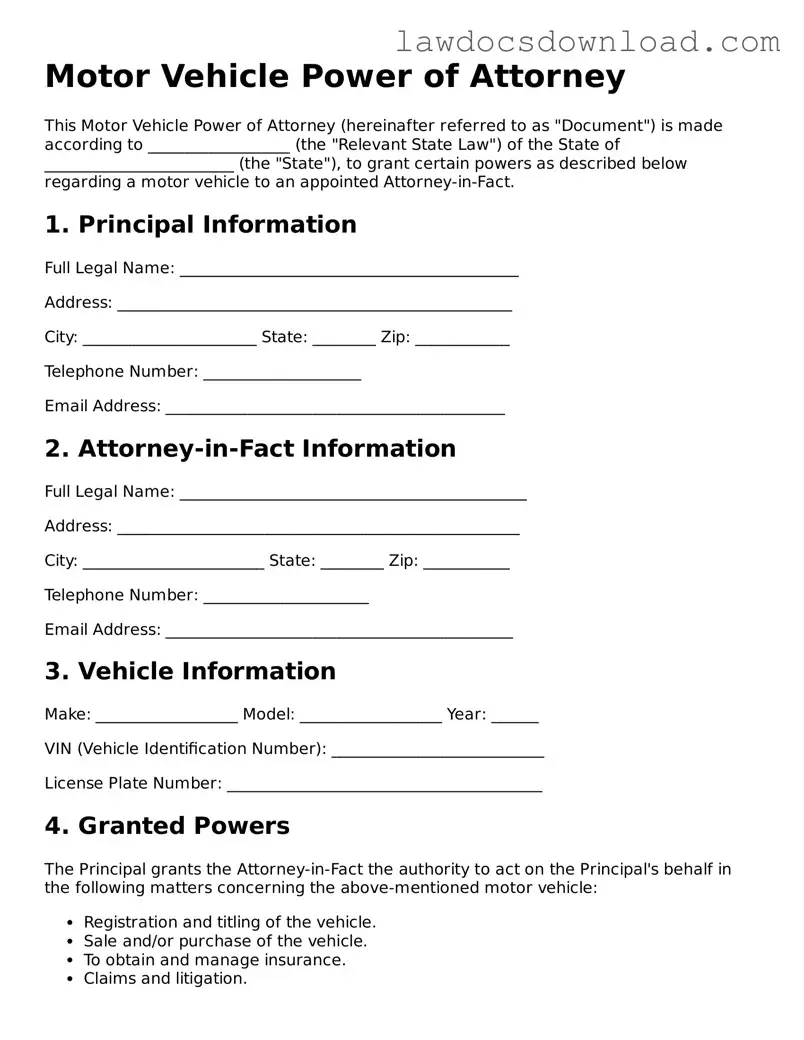Blank Motor Vehicle Power of Attorney Template
The Motor Vehicle Power of Attorney form is a legal document that grants an individual the authority to make decisions concerning the ownership, registration, and other legal matters related to a motor vehicle on behalf of the vehicle's owner. This form is essential for individuals who need to delegate these responsibilities due to absence, illness, or convenience. It ensures that the designated agent can act in the vehicle owner's best interest, adhering to all legal requirements.
Launch Motor Vehicle Power of Attorney Editor Here

Blank Motor Vehicle Power of Attorney Template
Launch Motor Vehicle Power of Attorney Editor Here

Launch Motor Vehicle Power of Attorney Editor Here
or
Free Motor Vehicle Power of Attorney
Get this form done in minutes
Complete your Motor Vehicle Power of Attorney online and download the final PDF.